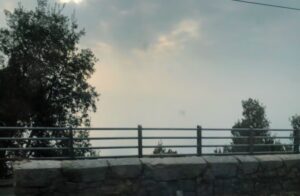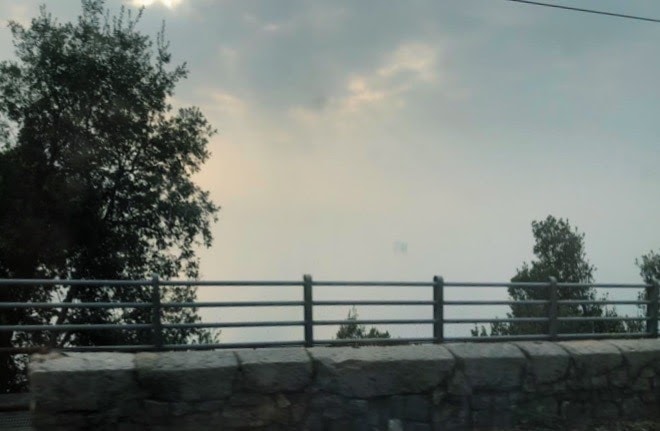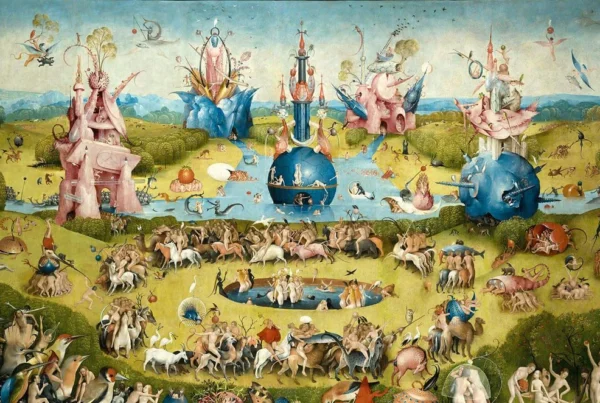
(c) Cesar Almeida
A reviving relationship, a week of holiday, and a cheap Ryanair ticket was all I needed to take one of the most insightful and unanticipated solo trips I have ever had. My starting point was Maastricht, the Netherlands, and my finish line was Duino, Italy.
The equation: one bus to every low-budget European traveler’s best friend: Brussels-Charleroi Airport, one late-night flight to Venice, one red-eye bus trip to the great Metropolis of Sacile, a kind Italian host family that took me in overnight, two more trains to Trieste and finally, one last dreadful bus ride to Duino.
This final bus ride to get to a “seaside resort on the northern Adriatic coast” with a population of just over a thousand people made a 31-hour long odyssey seem futile. Or that’s what I thought. I was tired. Throughout my trip, I had adapted my body to every single position possible in my Turistsutra guide. I had skimmed over the magazine I was bearing until exhaustion. Pretending to study all trip long, I was convinced I deserved a carefree and restful nap. The thought of finally laying down in bed seemed soothing when standing next to a sweaty Italian skater wearing a grey oversized “Thrasher” T-shirt on this last bus. When suddenly the bus stumbles upon a bump. The oblivious skater pushes my shoulder, interrupting my inner karaoke session to Sir Duke by Stevie Wonder and, in the midst of this ephemeral collision between passengers, the sun hits my eyes.
Oh my! this bump, this skater, this sun, everything led me to see one of the most jaw-dropping panoramas I had ever witnessed in my short life. Picture postcard, the Adriatic sea had nothing but a cloudy sky over it and its hoary reflection on the water, making it seem, at a distance, like a single, homogeneous surface. Our bus was riding on a highway sitting on a hill a few meters away from the cliff that hung above the sea. Our view extended for miles and miles. All we could see when gazing beyond the bus window, amid this vast colossal nothingness was an industrial fishing boat sailing to the horizon. The natural component of this portrait and humanity’s obnoxious interaction with it seemed astonishing.
Albeit industrialized, roughly 300 kilometers of the Adriatic coast running through Italy have been preserved as tourist destinations promising virgin beaches, natural landscapes, and isolation from the urbanized world. In this same stream of thought, I would have never expected to find this long, old and possibly polluting fishing boat of such fascination. Never before would I have thought that said element would be of such grandness as it was for me back then, and even now. It was the boat and the paradox it represented. How could it be that a speck in this vast sea could disrupt nature’s intricate equilibrium?
From Trieste to Venice and Bari, the Italian Adriatic coast is full of cities and resorts offering The Authentic *fill in the blank* Experience. But in between my jaunt from Trieste to Duino, among copious luxurious haciendas and expensive resorts, I contemplated a perfect, aesthetic contrast to the beauty and power of the Adriatic sea. Facilitating industrialization, this water functions as a tool for human subsistence. Its mechanics mark an apparent dynamic symbiosis, where mankind uses and abuses this sea for tourism, as well as fishing. It signifies exploitation with the label of an untouched, beautiful sea on one hand, a seemingly endless source of resources to take advantage of on the other.
My view of the boat, the sea, and the sky lasted about 4 seconds. This epiphanic moment was interrupted by a wall of dry trees connecting with a long tunnel making us change direction and lose this view, forever.
Funnily enough, the magazine I was reading presented some of Robert Frost’s most acclaimed poems. I looked down once more and read the end of his Road Not Taken and I could not but agree with him. After a solo trip whose worth was questioned, I took the path less traveled. That has made all the difference.
Other posts that may interest you:
Discover more from The Sundial Press
Subscribe to get the latest posts sent to your email.





